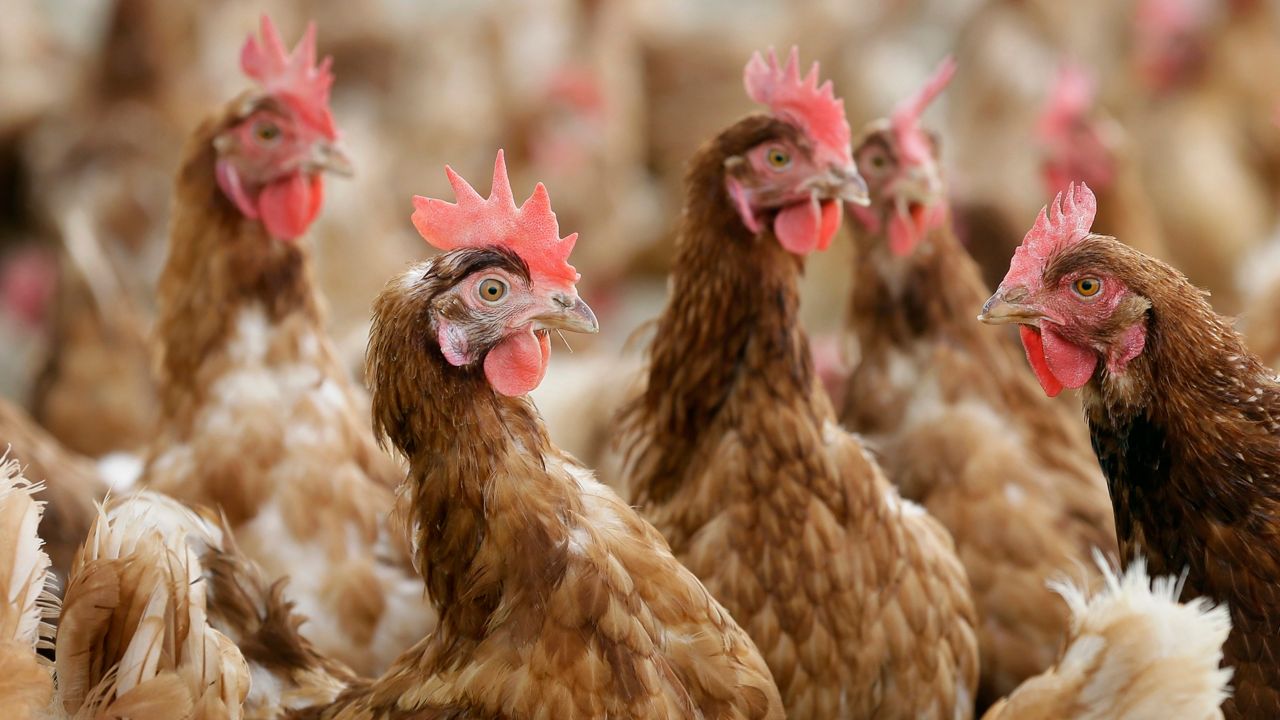All North Carolina poultry shows and public sales are grinding to a halt due to the threat of the highly contagious avian flu.
North Carolina poultry shows and public sales are suspended because of the avian flu outbreak
The suspension is in place until further notice and includes all poultry-related exhibits, flea markets, farm tours and more
The illness is considered highly contagious to birds, but low risk to humans
State Veterinarian Mike Martin announced the suspension Tuesday afternoon. And this means all exhibits, shows, sales, farm tours, flea markets, auction markets, swaps and meets related to feathered fowl and poultry are stopping until further notice, according to a release from the N.C. Department of Agriculture and Consumer Culture.
“This suspension is due to the continued spread of HPAI that has affected commercial and backyard flocks in numerous states, including North Carolina,” Martin said in a the news release. “We do not make this decision lightly. HPAI is a serious threat to our poultry industry and this is a precaution to help limit the introduction of the virus to backyard and commercial flocks.”
Other states, such as Georgia, have enacted similiar precautions or have changed events because of the avian flu outbreak. The N.C. DACS recommends that poultry owners across the state keep their flocks inside without outside access and report any illness to a local veterinarian or the N.C. Department of Agriculture and Consumer Services Veterinary Division, or N.C. Veterinary Diagnostic Laboratory System.
"This type of HPAI virus is considered a low risk to people, according to the U.S. Centers for Disease Control. There are no cases to date of this strain of HPAI infecting a person. The virus is also not considered a food safety threat and infected birds do not enter the food supply. All properly cooked poultry products are safe to consume," the N.C. DACS release said.
According to the N.C. DACS, warning signs of avian flu include:
- Reduced energy, decreased appetite and/or decreased activity
- Lower egg production and/or soft-shelled or misshapen eggs
- Swelling of the head, eyelids, comb and wattles
- Purple discoloration of the wattles, comb and legs
- Difficulty breathing, runny nares (nose) and/or sneezing
- Twisting of the head and neck, stumbling, falling down, tremors and/or circling
- Greenish diarrhea
The illness has been found at seven commercial poultry plants in Johnston and Wayne counties since late last month, officials said, and over 90,000 turkeys and over 280,000 broilers were "depopulated and composted on-site," the N.C. DACS said.
Updates and additional details on the current outbreak can be found here.








